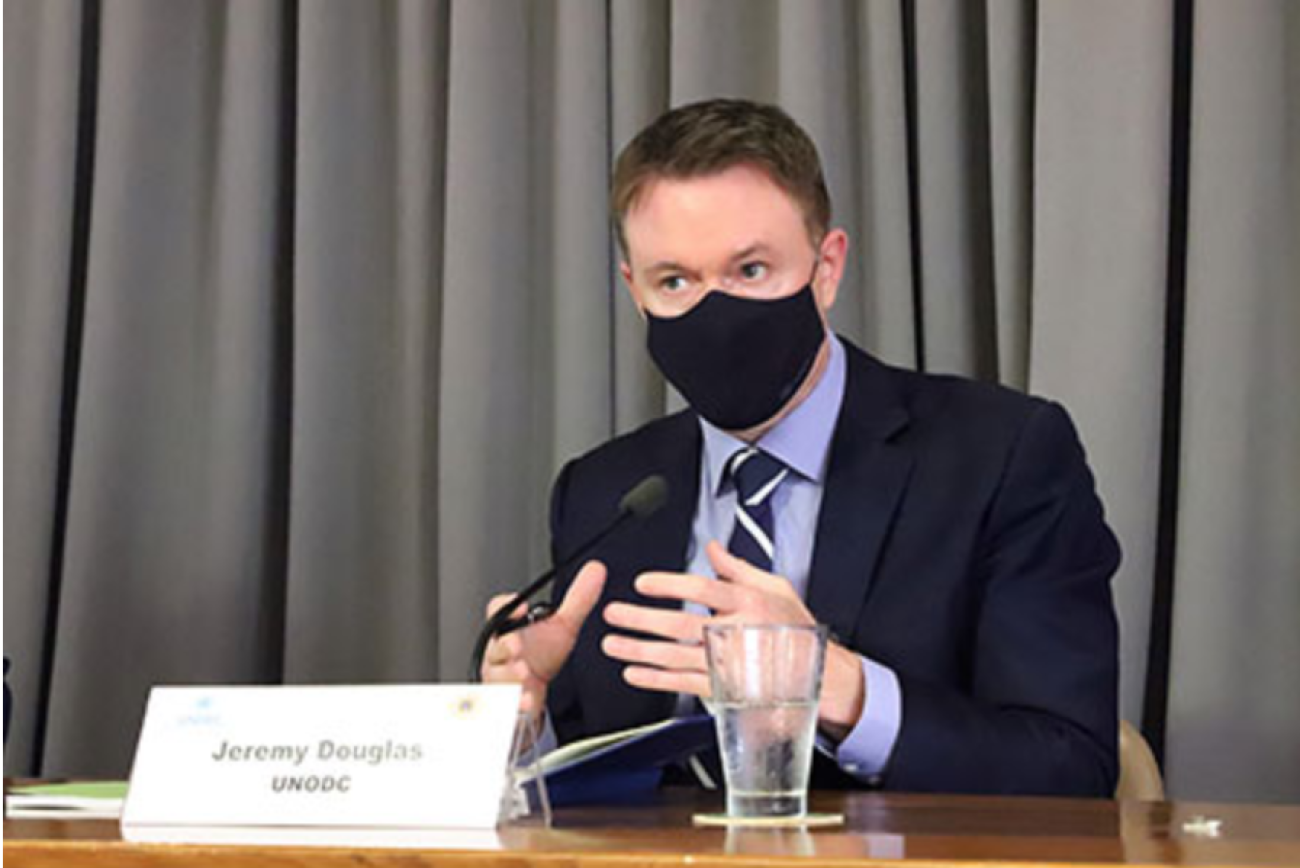The COVID-19 pandemic has limited the movement of people and goods across national borders and slowed economic growth in East and Southeast Asia. But it has not halted the production or trafficking of synthetic drugs like methamphetamine.
Those are the findings of a new United Nations Office of Drugs and Crime (UNODC) report that records an almost 20% rise in the volume of methamphetamine seizures in 2020 over volumes authorities detained in 2019. The report, released on June 11, details how crime syndicates continue to find ways to exploit new and existing transit routes for illicit drugs, including via Indonesia’s Andaman Sea and Malacca Strait.
“Organized crime groups have been able to continue the expansion of the regional synthetic drug trade–in particular in the upper Mekong and Shan State of Myanmar–by maintaining a steady supply of chemicals into production areas despite border restrictions that have impacted legitimate cross border trade”, said UNODC Regional Representative Jeremy Douglas ahead of its launch on June 11.
The crime groups that dominate the region have quickly adapted to and capitalized upon the pandemic, Douglas added, and continue to “aggressively push supply in a conscious effort to build the market and demand.”
Although authorities detained 71% of the approximately 170 tons of methamphetamine seized in 2020 in the lower Mekong countries of Cambodia, Laos PDR, Thailand, Myanmar, and Vietnam, the report points out that crime organizations have increasingly targeted Indonesia as a trafficking route.
Indonesia is now serving as a trafficking route from synthetic drugs produced in West Asia, as well in Southeast Asia’s “Golden Triangle”, en route to New Zealand, Japan and South Korea.
“The targeting of Indonesia by these criminal groups highlights the need for a comprehensive strategy that includes reducing demand through increased investments in drug treatment and rehabilitation,” says UNODC country manager for Indonesia and Liaison to ASEAN Collie Brown.
Although synthetic drug seizures in Indonesia declined in 2020, the UNODC report underscores the need for a comprehensive approach to both supply and demand, says Valerie Julliand, the UN Resident Coordinator for Indonesia.
“Drug use disorders disproportionately impact society’s most vulnerable people, and often their families and communities by extension,” Julliand says, “at a time when the pandemic has exacerbated inequalities and worsened poverty, evidence-based drug treatment and rehabilitation programs must be an integral part of our commitment to recover better.”
UNODC is working closely with countries in East and Southeast Asia through the Global SMART Programme and the Mekong MOU on Drug Control to monitor the drug situation and provide analyses, advice on cooperation, detection, precursor chemical control and public health strategies.




